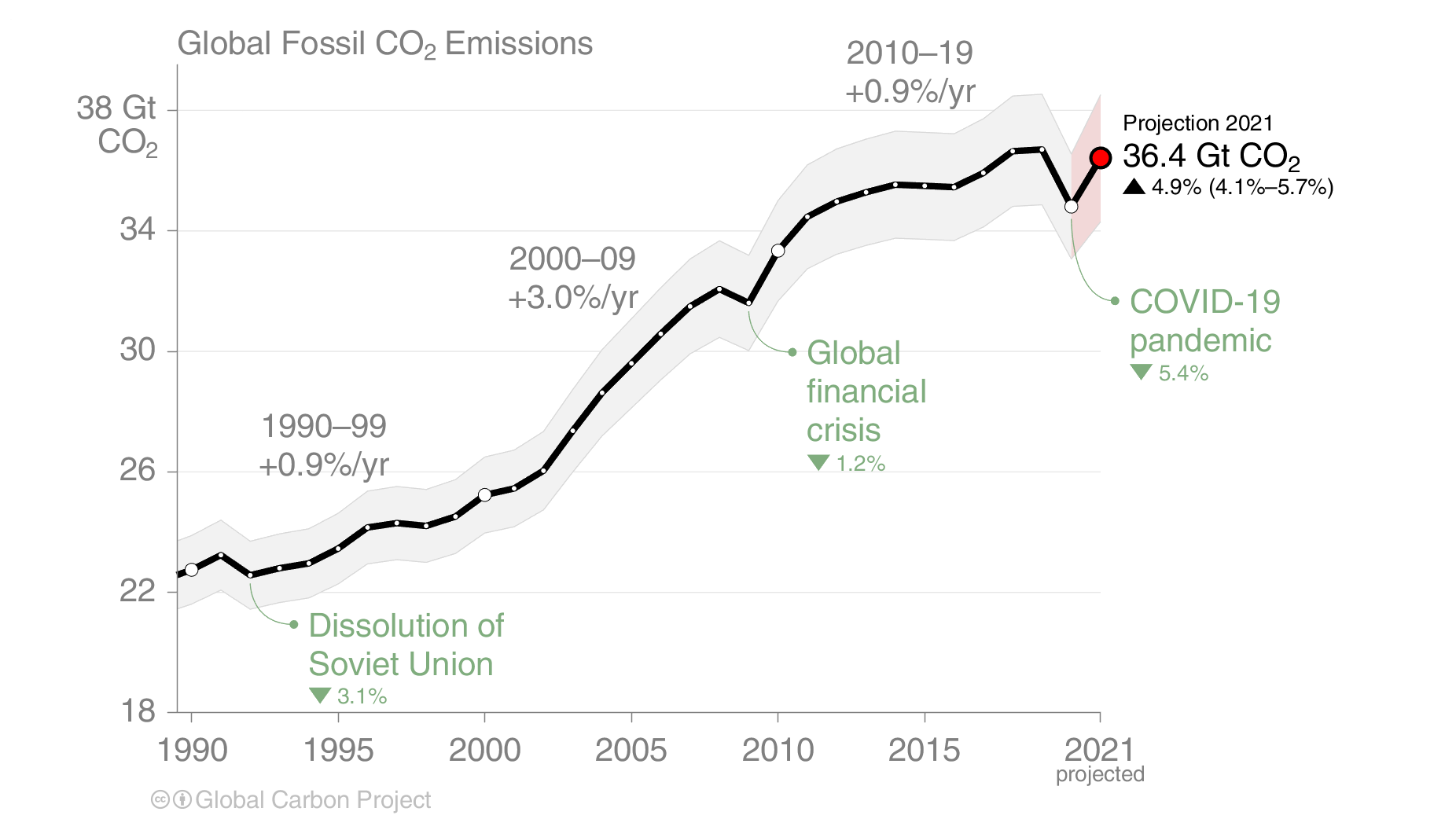Rebound in global CO2 emissions after Covid-19 is ‘bigger than expected’, scientists say
Fossil fuel emissions are expected to rise by 4.9% this year, says global analysis
Your support helps us to tell the story
From reproductive rights to climate change to Big Tech, The Independent is on the ground when the story is developing. Whether it's investigating the financials of Elon Musk's pro-Trump PAC or producing our latest documentary, 'The A Word', which shines a light on the American women fighting for reproductive rights, we know how important it is to parse out the facts from the messaging.
At such a critical moment in US history, we need reporters on the ground. Your donation allows us to keep sending journalists to speak to both sides of the story.
The Independent is trusted by Americans across the entire political spectrum. And unlike many other quality news outlets, we choose not to lock Americans out of our reporting and analysis with paywalls. We believe quality journalism should be available to everyone, paid for by those who can afford it.
Your support makes all the difference.The rebound in global CO2 emissions following the start of the Covid-19 pandemic is “bigger than expected”, scientists have warned.
Lockdowns and a slowdown in economic activity at the start of the pandemic temporarily caused global emissions to dip by 5.4 per cent in 2020.
But a return to carbon-heavy industry and investment in 2021 means that fossil fuel emissions are expected to rise by 4.9 per cent this year, according to an assessment from the Global Carbon Project.
“We were expecting some sort of rebound in 2021. I suspect this rebound is a bit bigger than many people expected,” said Dr Glen Peters, research director at the Center for International Climate Research in Oslo.
“What many of us were thinking in 2020 is it would be more of a recovery spread out over a few years, as opposed to a big hit in 2021. That’s where the surprise comes for me, it happened so quickly.
“And the concern is that there’s still some recovery to come.”
CO2 emissions from coal and gas use are likely to grow more in 2021 than they fell in 2020, according to the research, which is published in the journal Earth System Science Data.

The analysis comes midway through the first week of the Cop26 summit in Glasgow, a crucial meeting for getting the world on track to meeting its climate goals.
“The key message that I would like to send is to resist the temptation to be discouraged by these findings and to tackle the issues one by one,” said Prof Corinne Le Quéré, a Royal Society research professor of climate science at the University of East Anglia.
“The commitments that are being put in place in Glasgow are really important, and of course planning for the immediate implementation after that.”
A snap analysis published on Wednesday found that pledges put forward by countries at Cop26 could put the world on a path to limit temperatures below 2C for the first time.
However, immediate action on CO2 emissions this decade will be needed if the world is to get on track for limiting temperatures to 1.5C by 2100, the aspiration of the Paris Agreement, scientists told The Independent.
The new research found that, to have a 50 per cent chance of limiting global heating to 1.5C, countries must not emit more than 420 billion tonnes of CO2 – equivalent to 11 years at 2021 levels.
“The big question is what will governments do today and next year to ensure that emissions don’t rise and instead go down?” said Dr Peters.
“What are you implementing today to avoid emissions going up to a new peak in 2022? It’s really a choice.”
Join our commenting forum
Join thought-provoking conversations, follow other Independent readers and see their replies
0Comments